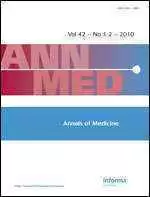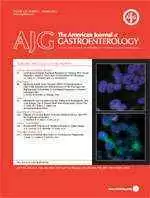Celiac.com 03/30/2011 - A team of medical researchers set out to compare gut permeability and mucosal immune gene expression in celiac disease and gluten sensitivity.
The research team included Anna Sapone, Karen M Lammers, Vincenzo Casolaro, Marcella Cammarota, Maria T Giuliano, Mario De Rosa, Rosita Stefanile, Giuseppe Mazzarella, Carlo Tolone, Maria I Russo, Pasquale Esposito, Franca Ferraraccio, Maria Carteni, Gabriele Riegler, Laura de Magistris and Alessio Fasano.
Celiac.com Sponsor (A12):
People with celiac disease suffer an adverse autoimmune reaction when they consume gluten. People with gluten-sensitivity cannot tolerate gluten and may develop gastrointestinal symptoms similar to those in celiac disease.
However, for people with gluten intolerance, the overall clinical picture is usually less severe, and is not accompanied by the concurrence of tissue transglutaminase autoantibodies or autoimmune comorbidities.
By examining and comparing mucosal expression of genes associated with intestinal barrier function, along with innate and adaptive immunity the team sought to better understand the similarities and differences between celiac disease and gluten sensitivity.
For their study, the team enrolled a group of subjects with celiac disease, a group with gluten sensitivity, and a control group of healthy, gluten-tolerant individuals.
They assessed intestinal permeability using a lactulose and mannitol probe, and collected mucosal biopsy specimens to study the expression of genes involved in barrier function and immunity.
They found that gluten sensitivity, unlike celiac disease, is not associated with increased intestinal permeability.
In fact, subjects with gluten sensitivity showed significantly reduced intestinal permeability compared with controls (P = 0.0308). This was accompanied with significantly increased expression of claudin (CLDN) 4 (P = 0.0286).
Relative to controls, subjects with celiac disease expressed higher levels of adaptive immunity markers interleukin (IL)-6 (P = 0.0124) and IL-21 (P = 0.0572), while those with gluten sensitivity showed no higher levels.
Subjects with gluten intolerance showed increased expression of the innate immunity marker Toll-like receptor (TLR) 2, but subjects with celiac disease showed no such increase (P = 0.0295).
Finally, subjects with gluten intolerance showed significantly reduced expression of the T-regulatory cell marker FOXP3 relative to controls (P = 0.0325) and celiac subjects (P = 0.0293).
This study supports the existence of gluten sensitivity and celiac disease as two clinically different gluten-associated disorders.
The study also supports the characterization of gluten sensitivity as a condition associated with prevalent gluten-induced activation of innate, rather than adaptive, immune responses in the absence of detectable changes in mucosal barrier function.
Source:
- Open Original Shared Link









Recommended Comments